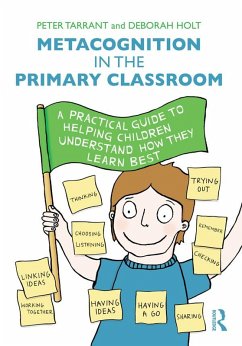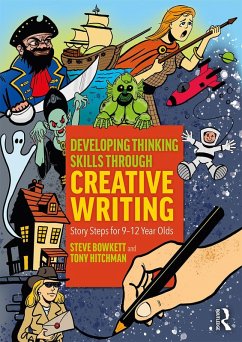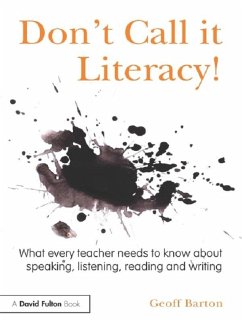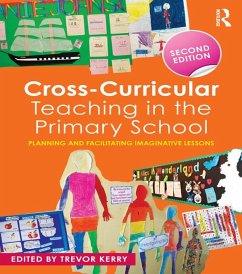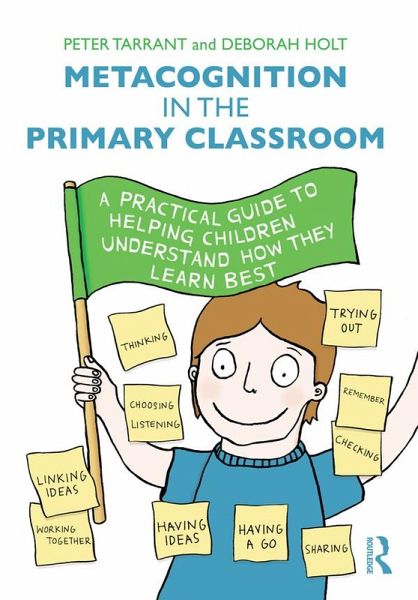
Metacognition in the Primary Classroom (eBook, PDF)
A practical guide to helping children understand how they learn best

PAYBACK Punkte
15 °P sammeln!
Current trends in education suggest that pupils should have more responsibility for their own learning, but how can they if they don't understand the what, the why and the how?This practical guide explores the idea that a metacognitive approach enables pupils to develop skills for lifelong learning. If pupils can identify the what, the why, and the how of their learning, they can begin to formulate strategies for overcoming challenges and for continuous improvement.In this book, the authors truly engage with research into the link between metacognition and learning, and the idea that if you ca...
Current trends in education suggest that pupils should have more responsibility for their own learning, but how can they if they don't understand the what, the why and the how?
This practical guide explores the idea that a metacognitive approach enables pupils to develop skills for lifelong learning. If pupils can identify the what, the why, and the how of their learning, they can begin to formulate strategies for overcoming challenges and for continuous improvement.
In this book, the authors truly engage with research into the link between metacognition and learning, and the idea that if you can effectively articulate your thoughts and strategies regarding how you learn, you might then be in a better position to take actions in order to improve and to be able to learn best. An appendix of useful resources is also included, which offers a range of activities surrounding the language of learning, reflection and metacognition, as well essential advice on how to develop metacognition in the early years (4-8), middle years (8-10), and upper years (10-13).
Metacognition in the Primary Classroom demonstrates how important it is for children to be well-enough informed to play an active role in learning better. Having the language skills to talk about your learning, and the opportunity to share ideas and strategies with others, enables all concerned to explore and develop approaches in order to learn better. This book is a crucial read for anyone interested in ensuring that pupils take an active role in their own learning.
This practical guide explores the idea that a metacognitive approach enables pupils to develop skills for lifelong learning. If pupils can identify the what, the why, and the how of their learning, they can begin to formulate strategies for overcoming challenges and for continuous improvement.
In this book, the authors truly engage with research into the link between metacognition and learning, and the idea that if you can effectively articulate your thoughts and strategies regarding how you learn, you might then be in a better position to take actions in order to improve and to be able to learn best. An appendix of useful resources is also included, which offers a range of activities surrounding the language of learning, reflection and metacognition, as well essential advice on how to develop metacognition in the early years (4-8), middle years (8-10), and upper years (10-13).
Metacognition in the Primary Classroom demonstrates how important it is for children to be well-enough informed to play an active role in learning better. Having the language skills to talk about your learning, and the opportunity to share ideas and strategies with others, enables all concerned to explore and develop approaches in order to learn better. This book is a crucial read for anyone interested in ensuring that pupils take an active role in their own learning.
Dieser Download kann aus rechtlichen Gründen nur mit Rechnungsadresse in A, B, BG, CY, CZ, D, DK, EW, E, FIN, F, GR, HR, H, IRL, I, LT, L, LR, M, NL, PL, P, R, S, SLO, SK ausgeliefert werden.




